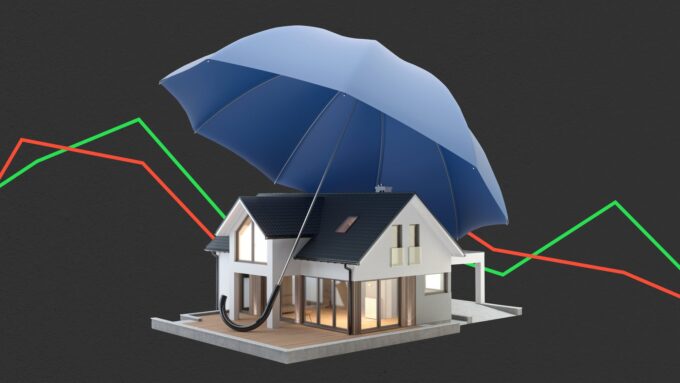The process of buying your first property can feel exciting but overwhelming. There are so many decisions to make, from choosing the right space to securing your finances. One major aspect that many first-time buyers overlook is home insurance. Without proper coverage, you leave yourself vulnerable to unexpected damage or loss.
Before moving forward, it is important to understand that not all insurance policies offer the same protections. The right policy can make a big difference in your future security. In this guide, I’ll walk you through what you need to know about first-time homebuyer insurance and how to find the right policy for you.
Key Points:
- Know the specific type of coverage you need.
- The cost of insurance can vary widely.
- Home insurance protects your property against damage or loss.
- Review what’s covered before finalizing any agreement.
- Make sure you understand your deductibles.
- Choose a reliable provider.
- Premiums are influenced by the property’s condition and location.
- Look for additional options like flood or earthquake coverage.
- Ask questions before committing to a policy.
- Coverage should meet your financial and lifestyle needs.
Why Homebuyer Insurance is Essential

Before signing the final documents, consider one vital detail: securing your new space with an insurance policy. For first-time buyers, insurance plays a key role in protecting your new property. Not only does it provide coverage in case of damage, but it also helps cover legal liabilities and loss of personal belongings.
For more detailed information on first time home buyer insurance I recommend checking out Erie Mutual Insurance. The right policy gives you peace of mind and security as you settle into your new property.
Coverage can include damage caused by natural disasters, theft, and even injuries that occur on your property. It’s also possible to add optional features like flood or earthquake protection based on your location. Without insurance, any repairs or losses could come out of your own pocket.
Key Coverage Areas to Consider
Some insurance policies offer limited protection, so make sure you understand the specifics of your policy. For example, does it cover damage caused by fire or storms? Will it replace stolen belongings? Always review what’s included.
Deductibles are another important factor. This is the amount you pay out of pocket before the policy kicks in. A higher deductible could mean lower premiums, but it also means more out-of-pocket expenses if something goes wrong. Make sure you are comfortable with your deductible before signing anything.
Finding a Reliable Insurance Provider
Your provider will play a key role in the type of coverage you receive. Not all companies are the same. Some offer better rates, while others focus on providing additional protection. To get the most out of your policy, look for a provider with a strong reputation and solid reviews. You can check out customer testimonials and read through independent reviews to see how others rate their experience.
Consider customer service as well. If you need to file a claim, how easy is the process? Does the provider respond quickly to your needs? These factors are often overlooked but can make a big difference when you need support.
Factors That Affect Your Insurance Rates

When selecting your policy, price will obviously play a major role. Your rate will depend on various factors, including the location of the property, its condition, and your credit score. Homes in areas prone to natural disasters or high crime rates will typically cost more to insure. The same goes for older properties, which often require more maintenance and upkeep.
Premiums also depend on the type of coverage you choose. Basic coverage is generally more affordable but may not offer full protection. On the other hand, opting for a comprehensive policy with added protections will cost more. Weigh the cost of the premiums against your budget and needs.
Is Additional Coverage Necessary?
Additional coverage may be needed depending on where your new property is located. For example, properties in flood zones or areas prone to earthquakes should have extra protection. Standard insurance usually doesn’t cover those events, so you’ll need to ask for optional add-ons.
Your provider should explain the risks based on your location. For peace of mind, it’s often worth the extra cost. If you think you’ll never need it, imagine the financial impact of a flood or earthquake without insurance coverage.
Why You Should Read the Fine Print
It’s tempting to skim through the paperwork and assume everything is covered. But this can lead to expensive mistakes. Before finalizing your policy, read every detail. Pay close attention to what the insurance covers, your deductibles, and any limitations.
For example, some policies may only cover certain types of natural disasters or damage. If you live in a region prone to floods, earthquakes, or hurricanes, you’ll need to confirm that the policy includes protection for those events.
Some policies also have limits on personal belongings. If you own valuable items, make sure the policy covers them. This is especially true if you have high-value electronics, jewelry, or collectibles. You can often increase the limit or add specific coverage for high-value items.
Common Mistakes First-Time Buyers Make

A common mistake is not understanding what your policy does and doesn’t cover. You don’t want to discover gaps in coverage when you need it the most. Another mistake is not comparing multiple providers. It’s always smart to shop around before settling on one.
Some people overlook additional coverage options like flood protection, assuming it won’t be necessary. However, unexpected events can happen, and it’s best to be prepared. Finally, make sure you don’t under-insure your property. While you may want to save money on premiums, skimping on coverage could end up costing more in the long run.
How to Make Sure You Are Fully Covered
Once you’ve decided on the policy, you’ll want to make sure that it fully meets your needs. Do a thorough walkthrough of your new space and note any areas that could potentially need extra coverage. This could be anything from high-value electronics to outdoor structures like sheds or garages.
Next, ask your provider about specific add-ons that will protect those items. Depending on the property, you may need additional protection. Make sure you’re satisfied with the deductible and the overall terms before finalizing anything.
Ask Questions Before You Commit
Don’t hesitate to ask questions. If something is unclear, reach out to your provider for clarification. It’s your right to know exactly what you’re getting and what you’re paying for. Ask about the claims process, how quickly they respond to emergencies and any exclusions in the policy.
Some providers also offer discounts if you bundle your policy with other types of insurance, such as car or life. Check to see if that’s an option to save money.

Final Thoughts
Insurance is an essential part of owning a property. It’s more than just a legal requirement—it’s about protecting your future and your finances. You’ll need to make careful decisions about the type of coverage you want and who provides it.
Be thorough in your research, ask questions, and make sure you’re completely satisfied before signing any agreement. In the end, the right insurance will give you peace of mind and financial security, knowing your new space is fully protected.








